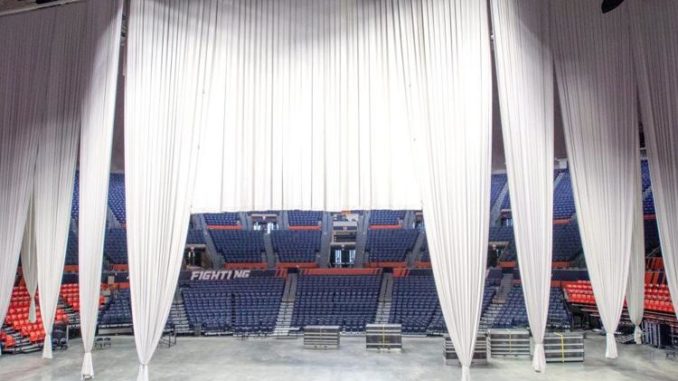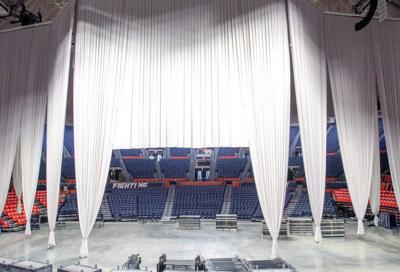

Sometimes we act like it is, and then we’re struck with a lightning bolt of reality.
For the jocks among us, we never imagined how swiftly our world could come crashing down, or that it was even possible. Now we look up in mid-March, not just canceling all levels of basketball (no ghost games without fans) and spring sports, but shuttering every crowd-attracting event from Ebertfest to Disneyland, from Broadway shows to college campuses (no in-person classes), from figure skating to institutions of worship.
It took the shocking elimination of our favorite pastimes to awaken the populace to the fact that, when we congregate in large numbers, we feed a ravenous disease. This stoppage is only partially about shielding the performers. It’s more about protecting those of us who would exacerbate the problem by eagerly and thoughtlessly congregating in close quarters.
Serious look at the numbers
First a number. One cent. A penny. If you double it for 27 consecutive days, it becomes $1,342,177. You’re a millionaire in less than a month.
That’s how a pandemic can multiply. It can’t be stopped entirely but, if allowed to run unchecked, the Center for Disease Control estimated it might (emphasis: might) run through upwards of 200 million citizens, with U.S. deaths in the hundreds of thousands. So our responsibility is to “flatten the curve.”
That is, to slow the spread and prevent the epidemic from suddenly overwhelming our hospitals, as happened in Italy.
Read the following, as explained by Yascha Mounk in The Atlantic, and you’ll understand the surreal tragedy when Italy’s confirmed cases exploded in a two-week period from 322 to 10,149 (now topping 15,000 with more than 1,000 dead) … challenging already strained health centers, respirators and medics.
“Informed by the principle of maximizing benefits for the largest number,” they suggest that “the allocation criteria need to guarantee that those patients with the highest chance of therapeutic success will retain access to intensive care.”
Even though coronavirus is vastly more lethal to the elderly than to the young, these Italian doctors are forced into impossible choices, including this: “It may become necessary to establish an age limit for access to intensive care.”
Thus, those who are too old to have a high likelihood of recovery, or who have too low a number of “life-years” left even if they should survive, will be left to die.
Questions will linger
So if some of us called our Wednesday-Thursday decisions an “overreaction” and “avalanche of panic,” perhaps we can now more calmly assess the necessity of it a few days after the fact.
Sure, some college basketball coaches were furious, and the athletes were bitterly disappointed. There were tears.
But it also offers collegians an opportunity to reassess, and consider that there are only so many games in a lifetime and many later-in-life decades that require preparation.
Questions remain, though, and will for some time: With the NCAA working out scholarship details to provide another year of eligibility for seniors in spring sports, how about basketball? What are the TV losses for a college program like Illinois that has leveraged its annual distributions ($53.9 million) into a series of 30-year loans on new facilities? Will there be Major League Baseball this year? And the Masters?
Trying times.
With billions lost in the stock market, we’re trapped in a sweeping melancholy. And no fun and games to allow us to forget it.
Loren Tate writes for The News-Gazette. He can be reached at ltate@news-gazette.com
https://www.news-gazette.com/sports/tate-without-sports-to-distract-public-health-becomes-our-no/article_0ec96850-8bbe-57ec-ad1c-17afab0b2ee2.html

Be the first to comment